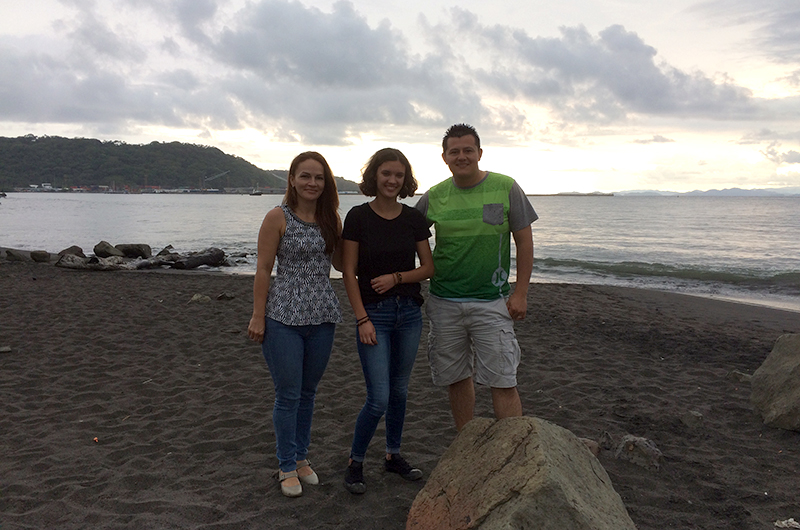No number of online orientations or packing tutorials could have prepared me for the first two weeks of my time studying abroad in Costa Rica, as nothing can truly ready a person for something they have not experienced. Every day has been a new adventure, filled with different sounds, smells, sights, and emotions. During my first two days in Costa Rica, the feelings that come with being immersed in a new language were still foreign to me.
The students who surrounded me in the orientation were fellow English speakers; when I did not understand something said to me in Spanish, neither did many of them. I was curious about the world around me, but still protected by the safety of common language. After meeting my host family, this shelter began to quickly deteriorate, leaving me very vulnerable, but determined.

I believe my host family anticipated more from my Spanish speaking abilities, because after about five minutes of uncomfortable silence mixed with futile attempts at conversation, my host mother looked to her husband and said my Spanish was ¨no good.¨ This introduction to immersion was the blunt awakening I needed to realize that there is no easy way out; no second language Spanish teacher would be rounding my grade up to create a better appearance, and no bell would be ringing to return me to an English speaking community.
During the first few days with my family, I attempted to converse as much as possible, but it was difficult as there was so little I knew how to say. All I could do was repeat how beautiful things were, and listen. This proved to be for the best, as focusing on other people’s conversations has helped me identify local slang and expressions that are not taught in second language classes. Through hearing native Spanish speakers converse, I have realized that there is no consistent way to measure fluency in a language.

If I had been asked in my Spanish class in the United States how old I was or how long I would be staying in a certain location, I could answer without any hesitation. Yet immersion presents language factors I had not considered prior to my departure, including local slang and the many ways in which a person can ask a single question.
School is the force that has pushed me to initiate conversations. No one will help me buy my books or show me where my next class is unless I ask, and the time restraints in my schedule force me to act upon my questions rather than put them off until later. Even though I have to be self sufficient, other people are more than willing to help me. One of my primary fears surrounding school was that I would not have friends, as I cannot sustain a conversation, but that fear has proven to be senseless.
It is practically impossible to not be welcomed into a group of people. Students and teachers are curious about my life in the United States of America, and they try their best to help me understand their questions. People enjoy hearing me say local phrases with my accent, and are eager to learn English vocabulary. I am surprised by how understanding teachers are about me attending a Spanish speaking school as an English speaker. They realize that I am here to learn a second language, not geometry or social studies.
As someone who cares deeply about grades, knowing that they will not be as high as they would be in the United States has been difficult. Although I am evaluated on a pass or fail criteria based on aspects other than just test scores, it is a process training brain to prioritize learning a language over letter grades. Immersion in school introduces many hurdles that I had not anticipated before my arrival, but learning to deal with them as they come is worth the moments of frustration.

It is hard for me to document my speaking and comprehension progress when there is still so much I do not understand. I am regularly having to remember not to be hard on myself, because it is difficult to constantly be patient. People will get annoyed with me and I will get annoyed with myself, but learning to not place blame on anyone for emotions that cannot be controlled is as advantageous, in my opinion, as speaking a new language fluently. Language is a tool that can be used to communicate and gain awareness of other cultures, but the process of learning a new dialect can be just as valuable as the language itself.
About the Author:
My name is Rachael Maloney, and I am a curious venturer fueled by good books and foreign food. I am currently spending my junior year of high school in Costa Rica, doing my best to absorb everything my 10 months abroad have to teach. I look forward to carrying these lessons with me for many years to come, and, in the meantime, sharing them in online articles for those who are interested. Follow Rachael on her adventure and read her stories here.

Rachael, it was wonderful to read your first experiences, and we feel very badly for you knowing that your early days have been troublesome and difficult. We surely hope all is going much better for you now.
Love, Mimi and Pops